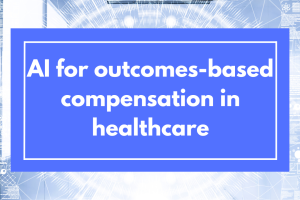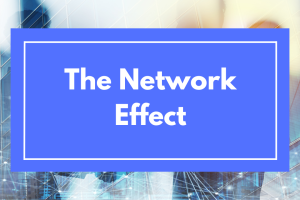Great, now Reuven wants to know if I’m hungry. Don’t worry, we’re not talking about hunger pains or anything like that. I’m talking about drive, the hunger to stop at nothing to succeed. But I’m also not talking about it in the most general sense. In other words, we’re not talking about all those Youtube videos dealing with motivation, drive, and hunger. I’m talking about the hunger unique to healthcare that is required to create a thriving practice. I’m talking about community hunger.
When you want to put together a thriving patient community, regardless of specialty, of course, it’s critical that both you, your staff, and your patients feel a certain hunger. Gone are the days of thriving practices where patients simply receive care. Today, a thriving practice depends on the teamwork built between a patient and the staff in the office. However, anytime you have a team, you need teamwork based on a voracious hunger. A driving force that unites the team and propels them forward.
Clearing objectives, roles, and expectations; providing training and support; promoting diversity and representation; providing incentives and feedback; and securing institutional support and sponsorship are all examples of effective patient engagement tactics, according to a systematic review on the topic published in Bombard et al. (2018).
One of the biggest misconceptions about hunger and drive is that you must be an extrovert or high-energy person to derive strength from hunger truly. In fact, I’ve quite often experienced the opposite. In Joseph and Bonnie’s case, these two had opposing personalities, but Bonnie, who was more of an introvert than Joseph’s incredible extroversion, was clearly overcome by a stronger hunger. She was more consistent in her behavior and suffered from less burnout than Joseph. She was also more adaptable. She was able to empathize with both high-energy patients and low-energy ones. Experience really is the best teacher, and more often, it’s easier to understand high-energy people from a low-energy perspective than to understand low-energy people from a high-energy perspective.
According to research, personality factors have been linked to job satisfaction and burnout among healthcare professionals. For instance, higher neuroticism levels have been associated with lower job satisfaction, increased emotional exhaustion, and depersonalization. Contrarily, agreeability and scrupulosity are positively connected with job satisfaction and adversely associated with depersonalization (Kang & Malvaso, 2023). These findings imply that managing burnout and enhancing worker well-being in healthcare settings can be facilitated by understanding various personality types.
I’ll give you a personal example. I am a high-energy person who loves to be loud, talk fast, and get from A to B with as little in between as possible. I was always the quintessential type A personality who never enjoyed the journey because he was too caught up in achieving the destination. In school, that can often do well for you, as I always achieved top scores on exams and papers. However, my personal relationships suffered greatly. For example, I could never maintain quality friendships (although I had many friends), and forget about romantic relationships where you truly need to be present to be successful. Imagine being so caught up in the result of effort and bringing that to a romantic situation.
Strong leadership is crucial in community-based healthcare practices. Effective community involvement projects have been shown to involve communities in planning, designing, implementing, and evaluating primary health care services. Community leaders are essential in promoting teamwork and driving the group toward shared objectives (Erku et al., 2023).
Ultimately, I had to recognize the drawbacks of my personality and the opportunities that presented. In other words, what were the challenges I had to overcome, and how would those help me to become a better and more contributing individual? At the same time, I struggled because some of my friends had great connections, and I often felt that they were lazy because they spoke slower, didn’t engage at a super high level of energy, and often stayed home instead of constantly going out. It’s important to consider the varied personality types’ needs for recharge time (Grailey et al., 2023). Now we understand the difference in recharge time required for different personality types.
For example, if you are more introverted, you can definitely be the life of the party, but afterward, you’ll need some time to recharge the batteries. There’s nothing wrong with this; in retrospect, I think this is more beneficial than constantly being out. The literature also emphasizes the importance of reflection and self-awareness in identifying one’s fundamental limitations and comprehending the advantages associated with various personality characteristics. Extroverts may thrive in social situations and get their energy from continual engagement, but introverts have a special ability to use deep thought and reflection to advance both personally and professionally. This implies that accepting and comprehending one’s innate characteristics might result in personal growth and achievement in a variety of areas of life (Grailey et al., 2023). It challenges us to search for that hunger within instead of constantly being hungry for what’s outside of us. In my personal struggle to expand beyond my core limitations, I recognized the incredible power of introverted people and how I could leverage that to grow personally and professionally.
However, one of the biggest mistakes people make is thinking they can grow this way independently. In other words, they think there is a way for them to simply absorb this information without help. Nothing could be further from the truth. Studies have underlined the value of mentoring for improving patient outcomes, career growth, and skills in healthcare settings (Nandwani, 2023). The analogy of hunger shows how, similar to the body’s requirement for nutrition from outside sources, people may need coaching to comprehend and successfully realize their inner desires. Without the right direction, they could make detrimental decisions repeatedly, just like when they consume “junk” without understanding their genuine needs. Mentorship serves as a compass, assisting people in discovering their true desires and fostering both personal and professional development. Think about your body, your purest form of hunger. Hunger is derived from within, but it craves what is without to build what’s within (deep, right?). But if no one tells you or helps you discover what those cravings mean, you’ll end up eating junk repeatedly. The body naturally doesn’t understand how to translate when it craves protein or carbohydrates, or fats. It just knows that it’s hungry, controls leptin and ghrelin hormones (boom, science), and tells your brain a simple command: ‘Eat.’
We know now that it’s a bit more complex, and when you can associate the right pangs of hunger to the right foods, you can always feel satiated, healthy, and energized. This of course, takes practice, but more often than not, people will say that they will just practice and figure it out. This leads to the old saying: “Practice makes perfect”, which is simply wrong. We’re always taught this idea because we want to get it in our heads that we need to practice things repeatedly to get better at them. For example, it’s always said that to master any skill, you must practice it 10,000 times. The thing is that practice truly doesn’t make perfect. Practice makes permanent. In other words, if you practice something one way 10,000 times, you’ll become a master at doing it exactly that way.
Perfect practice under the supervision of a mentor is essential for mastering medical abilities, according to research on simulation-based medical education (SBME) and intentional practice (McGaghie, 2008). So what’s the secret? Perfect Practice Makes Perfect. The reason the true phrase hasn’t spread as quickly is that it often seems impossible. It requires you to do something exactly right 10,000 times literally. Well, not exactly; this is the misunderstanding. Perfect practice makes perfect is really about guided practice. It means finding mentors that can help you identify the weakest parts of yourself as you go about becoming masters. It’s also about them pushing us when we are struggling so we don’t lose momentum. Healthcare practitioners can benefit greatly from mentorship in terms of overcoming obstacles and developing professionally (Nandwani, 2023).
Additionally, mentorship is essential in promoting their professional growth because it helps them improve their knowledge, abilities, and overall performance in the healthcare industry. Healthcare professionals can obtain important insights, learn from seasoned professionals, and navigate their careers more skillfully by asking for advice and support from mentors. I’ve had many mentors in my life, some personal, some professional, some who don’t even know it.
When it comes to hunger and building a thriving practice, it’s all about perfect practice makes perfect. Having mentors who can help healthcare professionals discover their areas for growth and push them to reach greatness in their abilities and patient care is what this entails in the context of healthcare (Nandwani, 2023; McGaghie, 2008). Healthcare professionals can overcome obstacles, hone their skills, and succeed in their jobs with the support of mentorship, which ultimately improves their practice’s performance and the caliber of patient care they deliver. It’s all about having mentors who push you and help you identify your imperfections, and keep you going when you’re struggling. These people push us beyond what we might expect of ourselves to achieve amazing things. In the case of building a thriving practice, we’re talking about two types of mentoring.
It’s all about encouraging the patients and staff to push themselves beyond their comfort zones and contribute to the collaborative effort necessary for a successful practice (Erku et al., 2023; Nandwani, 2023). The mentoring of staff and patients to push beyond their limitations every day and the expectation that your staff and patients will do the same for you. Don’t be afraid to actually say these things to patients as long as you’ve built a strong patient community. In a community, we look for opportunities to strengthen slightly weaker members, especially those in leadership positions. Only when a member or leader is seen as very weak will the community look for opportunities to remove them.
So don’t let yourself become weak! Interact and coach your members and get the same from them. Better outcomes for both staff and patients can result from fostering mentorship and mutual support within the healthcare community.
References
- Bombard, Y., Baker, G. R., Orlando, E., Fancott, C., Bhatia, P., Casalino, S., Onate, K., Denis, J.-L., & Pomey, M.-P. (2018). Engaging Patients to Improve Quality of care: a Systematic Review. Implementation Science, 13(1), 1–22. https://implementationscience.biomedcentral.com/articles/10.1186/s13012-018-0784-z
- Erku, D., Khatri, R., Endalamaw, A., Wolka, E., Nigatu, F., Zewdie, A., & Assefa, Y. (2023). Community engagement initiatives in primary health care to achieve universal health coverage: A realist synthesis of scoping review. PLOS ONE, 18(5), e0285222. https://doi.org/10.1371/journal.pone.0285222
- Grailey, K., Lound, A., Murray, E., & Brett, S. J. (2023). The influence of personality on psychological safety, the presence of stress and chosen professional roles in the healthcare environment. PloS ONe, 18(6), e0286796–e0286796. https://doi.org/10.1371/journal.pone.0286796
- Kang, W., & Malvaso, A. (2023). Associations between Personality Traits and Areas of Job Satisfaction: Pay, Work Itself, Security, and Hours Worked. Behavioral Sciences, 13(6), 445. https://doi.org/10.3390/bs13060445
- Nandwani, I. (2023, March 17). Impact of Mentoring in Health Care Industry. Mentoring Complete. https://www.mentoringcomplete.com/impact-of-mentoring-in-health-care/
A Future Book Publication Note:
This article is a chapter in the forthcoming 2nd Edition book “Medical Billing Networks and Processes,” authored by Dr. Yuval Lirov and planned for publication in 2024. We will post more chapters on this blog soon.









